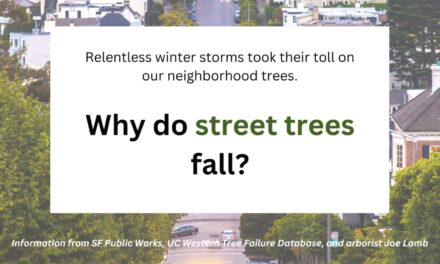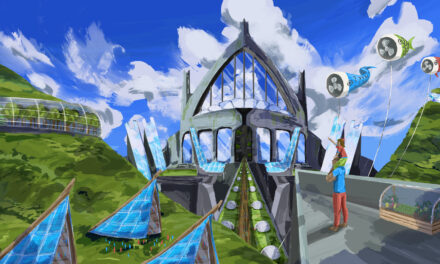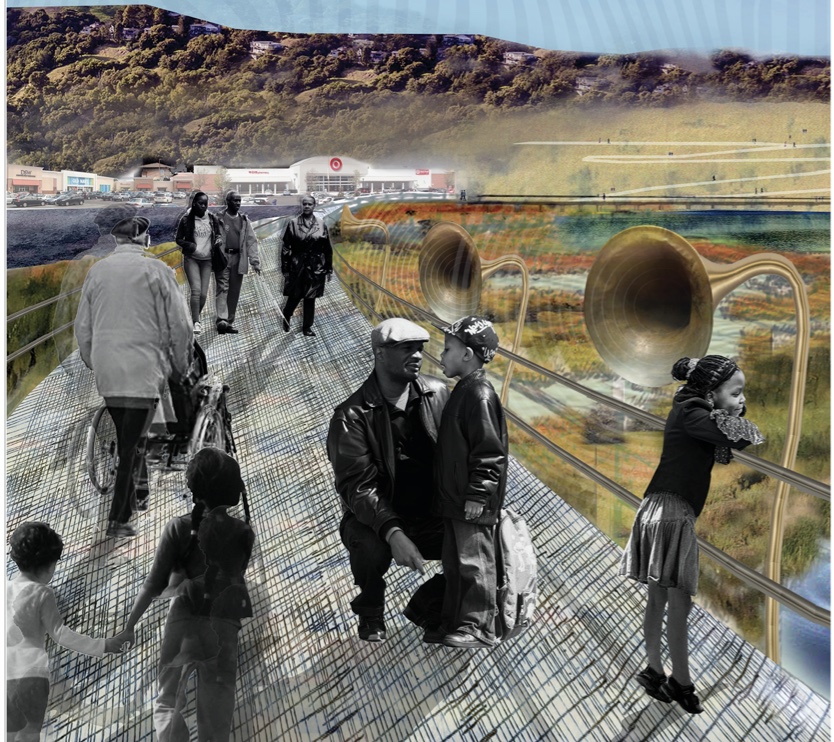Hollywood a Black Hole on Climate Change?
This past weekend, I dragged my friend to the theater to see a movie about blowing up a pipeline. When entering the one theater in Sacramento that chose to play the film, we weren’t expecting to see many people; we figured most folks might not want to watch a film about fighting the systems that perpetuate climate change.
So, we were pleasantly surprised to see that almost all of the seats were filled with a range of diverse faces, anticipation radiating from their bodies as the lights faded and the screen revealed images of destroyed property and climate activists.
The film gradually revealed how each character had been personally victimized by the effects of climate change, and why they believed that disrupting a major carbon dioxide generating structure could spark an environmental revolution. As the plot continued to unfold, the air in the theater grew thicker, compounded with another feeling, one I felt starting to rise in my own chest. A unique blend of tension and inspiration, in what I could only describe as collective hope.
This perceived moment of solidarity and a mutual understanding I felt among strangers is a great example of the influence TV and film can have on our relationship with climate change. Unfortunately, however, on-screen stories about climate change are a very recent development for Hollywood. A USC-Good Energy study on “climate silence” reported that only 0.6% of all scripted film and television released between 2016 and 2020 mention the term “climate change” and only 2.8% of all scripts included any climate-related terms.
“The film and television that we watch has historically played an important role in helping shape our culture and to some extent, help us make progress on divisive social issues,” says Daniel Hinerfield, director of the National Resource Defence Council’s film initiative Rewrite the Future.
Two stars, Leonardo DiCaprio and Jennifer Lawrence, from Don’t Look Up.
Since 2020, a handful of new climate-related shows and movies offer hope that Hollywood and its storytellers are finally taking advantage of TV and film’s cultural impact to explore a topic that impacts our global community.
The dramatic events that occur in a climate heist movie like How To Blow Up a Pipeline or the 2021 dark comedy Don’t Look Up (technically about a meteor, but it’s an allegory for climate change) are the least relevant parts of their representation of climate change. Rather, it’s the underlying acknowledgement that this is a human issue relevant to everyone. Therefore, it should be explored in one of our most uniquely human culture hubs — film and television.
Despite whether folks agree with the extreme actions in some of these on-screen stories or not, the conversations that come from them are what may ultimately lead to a cultural shift, and maybe a systemic one as well.
Hopefully, the increase in climate-oriented stories will pave the way for more casual insertions of climate change in films and television, allowing people to cope with the daily realities of its impact. A central character might encourage their neighbor to look into solar panels or a community might come together to share resources after a nearby wildfire.
Rewrite the Future believes that these depictions are necessary. “This is the world we live in,” Hinerfield explains. “There has been this growing gap between this climate-altered world in which we live and the world we’re seeing on screen, and at a certain point the gap becomes so great, the entertainment starts to feel irrelevant.”
Rewrite the Future is hoping to bridge that gap by challenging Hollywood filmmakers to stretch their creativity, imploring them to write more scripts about our current climate reality. They’ve been able to connect climate-conscious creatives together, and were pleased to discover that more filmmakers were interested in exploring this topic than one might think.
Film and television influences generations of people. Watching our current climate reality unfold on-screen can do the same, and it doesn’t have to be scary or hopeful, just as long as it’s real. Just seeing climate change represented can provide us the opportunity to be more imaginative about our future here on Earth. After all, is that not what the climate crisis demands?
Other Recent Posts
Magical Thinking Takes Eleven Kids on Journey for Justice
In fairy wings and cloaks, Bay Area youth turned the MLK Shoreline into a living game to tackle climate change — a photo essay.
Bayfront Redevelopment on a Landfill Sparks Pollution and Flood Concerns
The Redwood Life project plans to build 12 multi-story buildings atop a former landfill at the edge of Belmont Slough.
Nine Tiles Hint at Preferred Textures for Seawall Life
A two-year experiment suggests seawalls with nooks and crannies attract more seaweed, crabs, oysters and other bay creatures than smooth ones.
A Living Shoreline, Built One Oyster at a Time
Can the humble Olympia oyster stabilize shorelines and fight rising seas across the West Coast? With a little help from human engineering, there’s a good chance.
Assistant Editor Job Announcement
Part time freelance job opening with Bay Area climate resilience magazine.
Training 18 New Community Leaders in a Resilience Hot Spot
A June 7 event minted 18 new community leaders now better-equipped to care for Suisun City and Fairfield through pollution, heat, smoke, and high water.
Mayor Pushes Suisun City To Do Better
Mayor Alma Hernandez has devoted herself to preparing her community for a warming world.
The Path to a Just Transition for Benicia’s Refinery Workers
As Valero prepares to shutter its Benicia oil refinery, 400 jobs hang in the balance. Can California ensure a just transition for fossil fuel workers?
Ecologist Finds Art in Restoring Levees
In Sacramento, an artist-ecologist brings California’s native species to life – through art, and through fish-friendly levee restoration.
New Metrics on Hybrid Gray-Green Levees
UC Santa Cruz research project investigates how horizontal “living levees” can cut flood risk.











